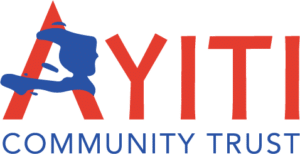Rural Ayiti Provides Effective Model for Disaster Relief
One year ago, the lives of many in the south of Ayiti would be forever changed. We stand in solidarity with our partners from those rural communities who have been working collectively to rebuild, since the earthquake that hit on August 14, 2021. As members of our team are on the ground right now to mark this remembrance, we remain actively engaged in learning by doing - specifically through our grants program.
After providing five years of support in Ayiti, the Ayiti Community Trust (ACT) has garnered key insights to help other nonprofit organizations provide an effective and phased-based approach to disaster relief. Our response to last year's earthquake further informed our ability to make an effective impact with our grantmaking.
One year later, we are sharing our community-driven approach in a new thought paper, "Rural Ayiti Provides Effective Model for Responding to Disasters," co-authored by our team members Guerda Nicolas, PhD, and Alyssa Jean, EdD. Because the demand to address the inevitability of impending natural occurrences is a significant concern for ACT, we hope to provide a viable model that responds to disasters while honoring the land and its people. The 2021 Earthquake Relief Fund was designed to support rural communities as they rebuild their lives in the three phases of relief, recovery, and reconstruction. This has allowed the team to gather vital intel, as well as test out how various interventions affect specific populations within the country.
The ACT Model for Effective Disaster Relief outlines four practical solutions for the diaspora, along with international aid organizations, on how to best contribute and provide the most impactful support toward disaster relief that leads to sustainable development in Ayiti.
- Support Local Economy
- Build Partnerships and Empower Local Professionals
- Build Local Capacity
- Communication and Document Experiences
When providing relief, it's important to recognize that there are structures in place before any international presence arrives on the scene. Building local capacity allows for an educational foundation that provides knowledge of individual and communal strength, informs community planning, and guides resource allocation for generations to come. Putting a focus on communication and documentation is essential for demonstrating efficient processes and data collection that can inform how friends of Ayiti invest in proven results that make a difference in the lives of Haitians. This approach requires groups to:
- Identify key stakeholders who are trained for disaster preparedness to be on the scene and offer guidance and strategic planning.
- Determine short-term and long-term goals as well as research needs for disaster relief efforts. Subsequently, share and clarify them with all stakeholders.
- Focus on fundraising efforts that target the goals and needs that have been identified by impacted communities.
In the early stages of disaster response, many donors are emotionally driven by the horror of the events and simply want to help. This can sometimes lead to a less structured approach where organizations are gathering a myriad of supplies that may or may not be relevant to the current situation at hand. Furthermore, the import of such supplies contributes to the existing waste problems that exist in the country. This knowledge of Ayiti - specifically in the rural areas - will help to decipher which avenue works to strengthen the local community's current infrastructure instead of unintentionally weakening it.
Here are some ways to start:
- Conduct a needs assessment to avoid unnecessary aid.
- Set up contacts to facilitate buying supplies locally.
- Reduce the drives for supplies to be shipped to the country.
- Ensure that you can manage the storing, shipping, and delivery logistics of supplies prior to collecting them.
Our partnership with grassroots organizations restored and amplified a sense of agency in communities in remote access areas and promoted the purchase and use of locally sourced goods. This model creates sustainable community change that can be the blueprint for humanitarian relief not only in Ayiti, but for other adversely affected countries. And it speaks directly to our belief that a new Ayiti is possible, and that Haitians have the will and power to lead their own destiny.
By Manolia Charlotin - August 15, 2022
